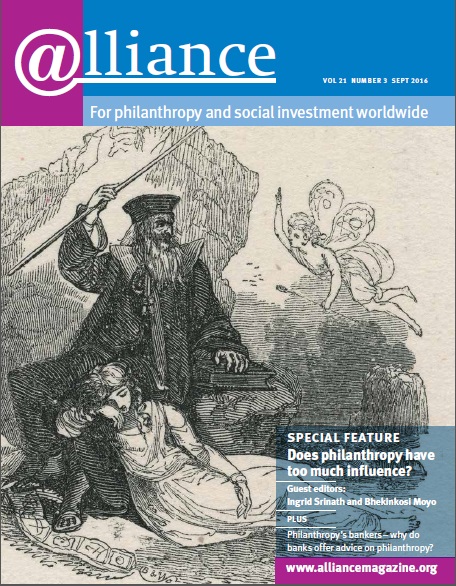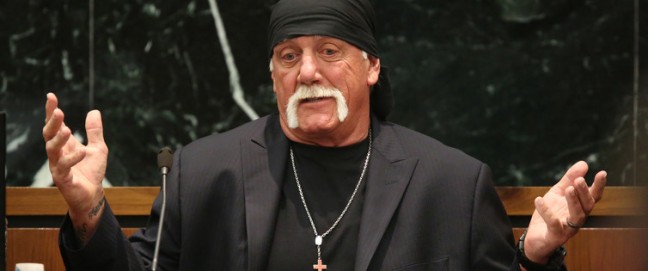‘In the United States, as soon as several inhabitants have taken an opinion or an idea they wish to promote in society, they seek each other out and unite together once they have made contact.’ Alexis de Tocqueville’s phrase extolling the virtues of civil society in the US is often cited. Generally ignored, though, are his warnings that, without safeguards, the tyranny of the majority and the inevitable overreach of government would combine to produce a power that is munificent yet absolute, professing a singular definition of ‘the public good’ which would dismiss – and ultimately destroy – all competitors.
In the matter of private giving, the American experiment has proved more resilient than our French visitor predicted. Both custom and law provide a high level of philanthropic freedom, beginning with the relative ease with which civil society organizations can form as tax-exempt organizations, and ending with a tax code and regulatory policies that provide significant incentives for charitable donations and give donors wide discretion in when, where and how they distribute their gifts. The ability of donors to identify needs at a local or national level, and then create and sustain organizations to address those needs, is at the core of a dynamic, responsive civil society.
‘Philanthropic freedom is not guaranteed, and in the US direct and indirect attacks on this hallmark of civil society frequently come from critics within the charitable community. Among the most serious are suggestions that current laws governing non-profits are flawed and those responsible for regulating charities are not doing their jobs, so a new policing agency for charity should be established.’
The threat posed by an ‘independent’ regulator
But philanthropic freedom is not guaranteed, and in the US direct and indirect attacks on this hallmark of civil society frequently come from critics within the charitable community. Among the most serious are suggestions that current laws governing non-profits are flawed and those responsible for regulating charities are not doing their jobs, so a new policing agency for charity should be established. Yet any non-profit administrator knows only too well how much accountability and transparency are demanded by the Internal Revenue Service and state charity officials around matters like compensation, fundraising, grantmaking, and a host of other non-profit management concerns. Rooting out the occasional bad actors who engage in fraud and self-enrichment does not warrant a seemingly independent regulatory agency which would be even more likely to succumb to pressure and manipulation from interest groups within the non-profit sector itself.
Who should put the ‘public’ in ‘public benefit’?
Philanthropic freedom is also threatened by those who complain that too much giving is defined as charity and recommend that some ‘independent’ measure of public benefit should be used to narrow its meaning. In everyday language, ‘charity’ brings to mind almsgiving, soup kitchens and Tiny Tim Cratchit. But in the language of the US tax code, and the varied facets of US civil society, ‘charity’ is much more. In fact, the broad discretion provided by the tax code reflects the variety of charitable choices Americans have historically made – choices that include religious, educational, medical, environmental, civic and cultural institutions. To advocate for a hierarchical treatment of non-profits is an alarming break with this long history, which is bound to shrink civil society and expand government control. Exactly who will be defining ‘public benefit’? If elected officials choose the winners and losers, how can we ensure a place for causes that are politically or socially unpopular?
A safe space
A third attack on philanthropic freedom comes from public officials and others who threaten the privacy of donors to public charities. Although some of the current demands for donor disclosure stem from the anonymity of donors to ‘social welfare’ organizations which may legally engage in limited political activity, history offers chilling reminders of the potential for the abuse of power. In the 1830s, Andrew Jackson tried to force postmasters to expose donors to the abolitionist movement, thus ensuring that they would be subject to ridicule, pressure and threats. In the 1950s the state of Alabama demanded the NAACP’s membership list, but the Supreme Court upheld the right of members to confidentiality.
Those who see anonymous giving as a virtuous act might well wonder when it became a vice. Individual donors choose anonymity for many reasons – humility among them – but maintaining the privacy of donors to public charities also guarantees that our most controversial civil society organizations can exist in a safe space where donors are free from harassment and threats.
Self-policing, not policing
Finally, critics of philanthropy demand greater accountability and transparency, larger foundation payouts, prescriptive rules on board membership, an end to perpetuity, and proof of social value and effectiveness. These recommendations may well warrant consideration by donors, but would be toxic if mandated. Foundations’ lack of external accountability – apart from their accountability to government authorities for compliance with the tax laws, which should not be taken lightly – can lead to laziness and insularity, and ultimately to mediocre grantmaking. But it is one thing to criticize a foundation for its failure to be open to outside perspectives or evaluate its own performance. It is quite another to suggest that outsiders have the right to decide what foundations can and cannot do.
‘Threats to philanthropic freedom ultimately rest on the presumption that philanthropy is essentially public money which the state allows private individuals to spend. But this is exactly backwards. Tax exemption protects the independence of private institutions of civil society from government manipulation and interference.’
Threats to philanthropic freedom ultimately rest on the presumption that philanthropy is essentially public money which the state allows private individuals to spend – in other words, gifts bestowed by government. But this is exactly backwards. Tax exemption protects the independence of private institutions of civil society from government manipulation and interference. As Senator Orrin Hatch, chairman of the tax-writing Finance Committee, noted in July this year: ‘Every charitable gift has one thing in common: the donor is always left worse off financially, but society is made better.’ The presence of the charitable deduction in the US tax code reflects the central importance to a free society, since the nation’s earliest years, of voluntary donations of time and money.
A polyarchy – the power of many sources
Karl Zinsmeister, author of the recently published Almanac of American Philanthropy, characterizes civil society as a ‘polyarchy’ – a society in which there are many independent sources of power. Private philanthropy is one of those sources. Civil society does not limit participation to a privileged few. It is as diverse as it is dynamic. And where philanthropic freedom is safeguarded, it flourishes. That flourishing is evident in philanthropy’s long history of enhancing democracy and public life. Beginning with John Harvard’s 1638 bequest to the as-yet-unnamed ‘schoale or colledge’ in the Massachusetts Bay Colony, philanthropists have recognized the critical role of education in the formation of an enlightened citizenry and supported educational initiatives from public schools to Sesame Street and the Harlem Children’s Zone. Giving USA recently reported that in 2015 alone, giving to education totalled $57.48 billion.
Much of that giving reflects a donor’s own sentiments and values. Critics frequently allege that such personal choice is one of philanthropy’s greatest weaknesses, that it produces a hodge-podge of outcomes that may not meet the nation’s ‘real needs’. But Stephen Carter, a professor at Yale Law School, reminds us that ‘the individual who gives to charity might measure the needs of the community by different calipers than centralized policy makers, and will therefore contribute to a different set of causes. These millions of individual decisions lead to a diversity in spending that would be impossible if we adopted the theory that the only money spent for the public good is the money spent by the state.’
‘Even in democratic nations, philanthropists protect diversity and choice when they have the freedom to fund people, programmes and ideas that are unconventional or unpopular.’
Safeguarding the foundation of freedom
The institutions of civil society and the philanthropy that supports them embody those alternative and independent sources of authority that centralized power fears most. Is it any wonder that totalitarian states seek to co-opt or destroy the most powerful institutions? Even in democratic nations, philanthropists protect diversity and choice when they have the freedom to fund people, programmes and ideas that are unconventional or unpopular. Examples of this abound in education, from the abolitionists who provided funds to ensure that the anti-slavery-oriented Oberlin College would keep its doors open in the 1830s to the school choice advocates and funders who have battled legal and political challenges for decades.
Going well beyond education, philanthropy has enhanced civil discourse and debate around the nation’s most pressing social, political and economic concerns. Foundations and individual donors have been at the forefront of issues such as race relations, health care, marijuana legalization, gun control, LGBT rights, embryonic stem cell research, immigration, abortion, climate change and political polarization. Bound by neither elections nor market forces, philanthropy must also remain unfettered by unreasonable ‘one size fits all’ regulations. An independent and vibrant civil society is our best hope for tomorrow. Safeguarding the foundation of freedom on which that hope rests is our responsibility today.
Joanne Florino is senior vice-president of The Philanthropy Roundtable.
Email jflorino@philanthropyroundtable.org
Lead photo: David Cornejo, Flickr







Comments (0)